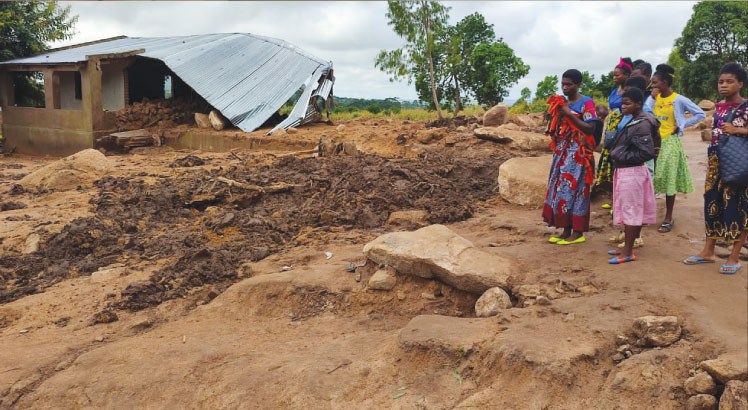An assessment on Community-led Resource Mobilisation and Early Warning Systems Process has unearthed some factors that make rural communities vulnerable to natural disasters.
The factors include disorganisation of some community structures, lack of support or political will from community leaders and the government, and lack of capacity for districts to generate their data in real-time in response to disasters.
Cyclone Freddy has hit the ultra-poor most
The report compiled by International Food Policy Research Institute (Ifpri), says community-based early warning systems although available, are insufficient to provide effective risk reduction for natural disasters while communities are also reluctant to adopt improved agricultural practices.
Reads the report in part: “Most participants reported that thei r communities did not have early warning equipment. They were, however, able to receive information from various sources. In the few communities where instruments were available, the most common instruments were a rain gauge, wind vane and river line gauge.
“Howev e r, t h e r e are few wind vane systems compared to the communities most affected by strong winds. There is a gap in early warning equipment that corresponds to the climate hazards that communities are most affected by.”
The report, written by Ifpri’s Fundi Kayamba- Phiri and Daniel Abbott, further acknowledges lack of documentation concerning indigenous early warning systems, which impedes the development of effective and contextual strategies for risk reduction.
The publication comes at a time Malawi continues to be affected by natural disasters.
For instance, between 2015 and 2023, disasters in the country have killed about 5 527 people and cost the economy an estimated K1.29 trillion.
Meanwhile, the report has recommended increased awareness among traditional leaders, defining resource mobilisation structures and documenting guidelines and transactions for transparency.
In an earlier interview, Department of Climate Change and Meteorological Services director Lucy Mtilatila called for investment in early warning equipment such as weather radar.
“We also need to invest in weather forecasting tools. We also can enhance disseminating methods to ensure that warnings reach the intended communities,” she said.
The post Report identifies weaknesses on early warning systems first appeared on The Nation Online.
 Moni Malawi
Moni Malawi 

